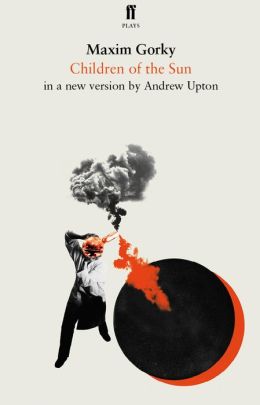 |
| Image courtesy of www.barnesandnoble.com |
Maxim Gorky
1905
The Summary
Maxim Gorky's play tells the story of Protasov (Pavel), a minor Russian aristocrat and obsessive scientist, and his family as they weather the trials and tribulations of a particularly frightening affair: political uprising and violent protests.
The Good
Much of Gorky's play is told in good fun (or satire, as the case may be) - and Pavel is amusingly forgetful, terribly evasive, and frighteningly obsessive, even while he tries to avoid the attentions of Melanyia, a young widowed woman with her eyes now set on the married Pavel.
The awkward conflicts between the two are certain to garner a laugh, or, at least, a passing giggle.
Additionally, it's funny how often the characters of Gorky's play clash and rebound, ricocheting wildly against each other and their surroundings as they attempt to find a more comfortable place in society and acclimate to the changing social climate - even as they fail miserably at the latter.
The Bad
Honestly, reading Children of the Sun is a bit of a chore. While the play has its moments where it amuses and enchants, it more frequently discourages with its seriously flawed characters, its dissatisfying conclusion, and its criticisms of human nature - or, more accurately, its criticisms of corruptible human nature within society.
It's interesting and potentially enlightening, but, ultimately, it's difficult to read and remain entirely attentive.
The Ugly
Although Children of the Sun is tinged with comedy, the characters of Gorky's play seem doomed to encounter tragedy and, more importantly, doomed to remain caricatures of a flawed, human society.
For instance, Pavel, a dedicated scientist, can no longer see past his experiments to even stop his wife from leaving. Liza, afraid to trust the world and enjoy life, chases away the one many who loves her. Melanyia, widowed and prowling for a new husband, spends her days tailing after a man who is not only married but couldn't possibly love her in the first place.
And that's not even half of it.
In between the miscalculations and missteps and mistakes, you'll find madness, violent protests, social upheaval, sickness, death, and suicide. It's a concoction of tragedy that will leave you reeling - and not altogether satisfied with its conclusion.
No comments:
Post a Comment